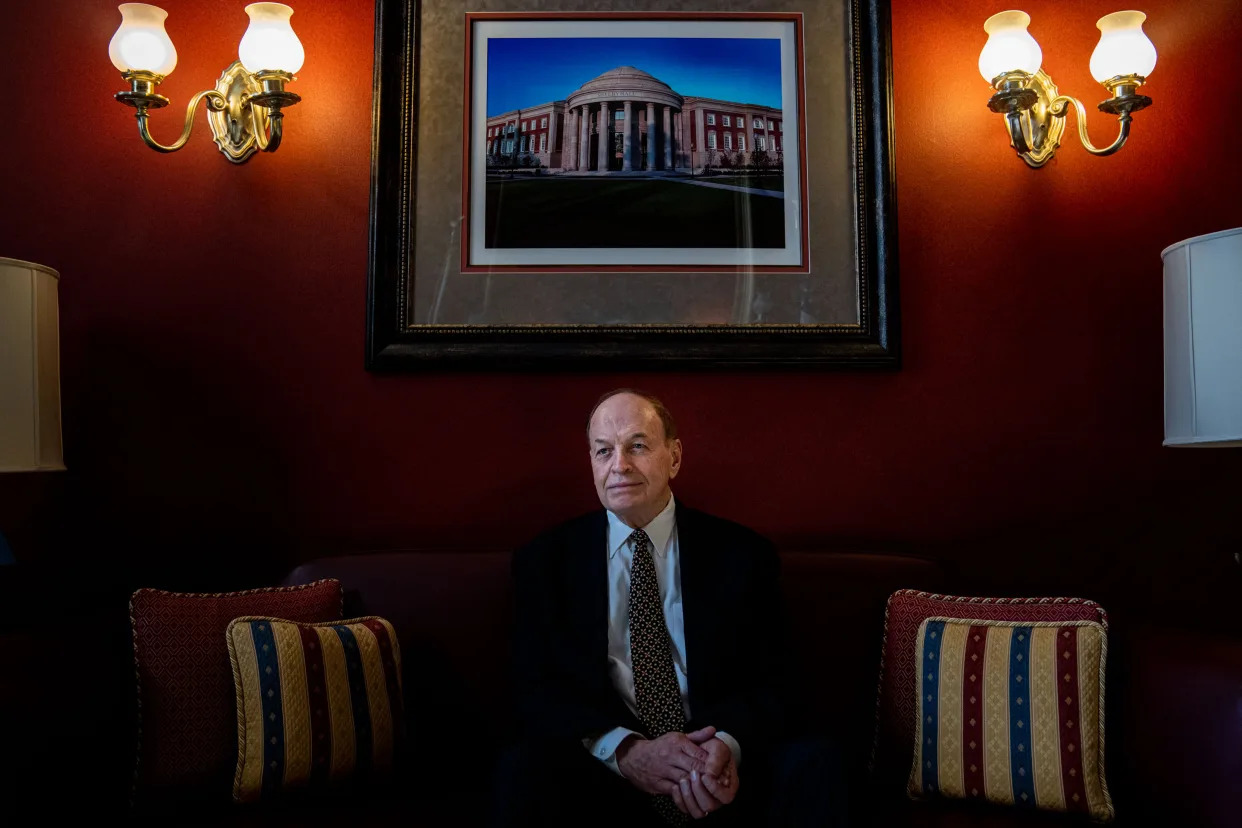The New York Times
Republicans’ Big FBI Cut Came From Scrapping One Senator’s Earmark
Catie Edmondson – March 9, 2024

WASHINGTON — When Republicans won the House majority, some of their most conservative members pledged to use their power to slash the budgets of the federal agencies they claimed had been weaponized against them — chief among them the FBI.
So when Speaker Mike Johnson unveiled the package of six government spending bills he had negotiated with Democrats that cleared Congress on Friday, he touted the “deep cuts” — 6% — Republicans had secured to the agency’s budget.
But the story of the FBI cut is not so much one of how House Republicans used their slim majority to raze the budget of an agency they claim has gone rogue. Instead, it is a remarkable yarn about how a single powerful senator used budgetary sleight of hand to steer hundreds of millions of dollars to a single project in his state, only to see the money slashed by members of his own party after he retired.
Out of the $654 million lawmakers agreed to cut this year from the FBI’s operating budget, $622 million came from eliminating what was essentially an old earmark: money for construction at the bureau’s campus at Redstone Arsenal in Huntsville, Alabama. The funding was placed into the budget years ago by Sen. Richard Shelby of Alabama, a legendary pork-barreling veteran who retired in 2022 at 88.
The actual cut to the FBI’s operating budget — mostly for personnel and operations — was roughly $32 million, or 0.3%.
Ultraconservative Republicans like Rep. Chip Roy of Texas who voted against the spending package this week, deriding it as full of budgetary gimmicks, pointed to the elimination of Shelby’s pet project as a prime example of how little his party had actually been able to cut.
Grousing about the FBI budget cut on the House floor this week, Roy said, “What they won’t tell you is, 95% of that cut is eliminating an earmark from Richard Shelby, because Richard Shelby is no longer here to defend his pet project building back in Alabama.”
For years, Shelby used his perch on the Appropriations Committee to single-handedly transform the landscape of his home state, harnessing billions of federal dollars to conjure the creation and expansion of university buildings and research programs, airports and seaports, and military and space facilities.
One of his most prioritized projects was the twin FBI campuses at Redstone Arsenal in Huntsville, where over the course of a decade, he steered more than $3 billion to build up the 1,100 acres of land the bureau has secured there for facilities dedicated to cyberthreat intelligence and training.
The FBI has said to expect that more than 4,000 jobs will come to Huntsville over the next eight to 10 years.
Normally, such pet projects are funded through earmarks — a practice that allows lawmakers to direct federal funds for specific projects to their states and districts. Those projects are enumerated in a separate list, which clearly lays out how much federal money is going to a specific project, and which lawmaker requested it.
Shelby instead shoehorned money for the campus into the text of the spending bill, in an apparent effort to ensure it would be available even after he left Congress. For multiple years in a row, the Biden administration requested about $61 million for the FBI’s construction budget. Instead, at the senator’s behest, Congress gave it $632 million one year, and $652 million the next. Shelby did not immediately respond to a request for comment.
In each case, the laws stated that the additional funding was to be used to address the FBI’s “highest priorities outside of the immediate national capital area,” meaning Washington, D.C.
While it did not say so in the legislation, it was clear that that meant only one place: Huntsville.
“Growing the FBI’s presence in Huntsville has been a priority of mine for quite some time,” Shelby said in an announcement in 2022 touting the additional funding. “And I am proud to have helped bring it to fruition.”
